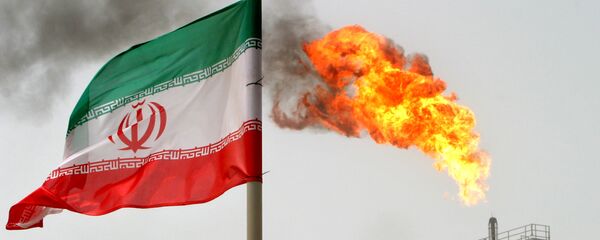Sputnik: As the US further tightens crude sanctions on Iran, the country is looking sell its oil in a "grey market" — who are the buyers?
Sina Azodi: I think that the same buyers that legally bought Iranian oil will continue their purchases, but since it is the “grey market” they will demand discounts from Iran. They especially include China and India.
Sputnik: How likely is it that China, India and Turkey will stop importing oil from Iran?
Sina Azodi: For Turkey, I believe it's questionable, but we have to keep in mind that sanctions on Iran will impact Turkish economy and that’s why they rejected US unilateral sanctions. Turkey’s relationship with the US is not really good over the S-400 purchase deal with Russia.
Sputnik: Do you think it will be possible for Iran to bypass the sanctions, perhaps by trading "under the radar" in some form?
Sina Azodi: Yes, absolutely. Iran managed to find buyers even when the EU has imposed an embargo on Iranian oil. IRGC’s front companies are a major player in bypassing the sanctions — but over time (especially after the case of Reza Zarrab) the US has learned about how they operate, but I still think the Iranians will find a way to sell their oil.
READ MORE: Iranian FM Says EU Should Uphold Obligations Under JCPOA
Sputnik: President Trump claims there is enough oil in the US, Saudi Arabia and the United Arab Emirates to replace Iranian crude. Is this really the case? Will there be any implications for the global economy?
Sina Azodi: I think they can replace the Iranian share in the short term but not in the long term. Also, we have to wait and see if there are politically inclined to do so. They don’t wish to antagonise Iran too, much because Iran may want to poke the Saudis in other areas.
Sputnik: The European Union has previously said it plans to uphold the 2015 nuclear deal without the US. In a statement, the EU and the foreign ministers of France, Germany and Britain said they took note "with regret and concern of the decision by the United States not to extend waivers with regards to trade in oil with Iran". What might be the EU's next step?
Sina Azodi: I don’t think the EU is able to do anything to counter the US. While they officially state that we want to uphold the JCPOA, they are not wiling to take practical measures; expressing regret (not even condemnation) does not have any practical benefit for Iran. In one way, both the EU and the US are getting the benefits of the JCPOA, while Iran is losing.
READ MORE: Ex-US Intel Officer: Iran Unlikely to Seek Nukes Despite Suspending JCPOA
Sputnik: How reliable is the INSTEX system, which was announced by the EU in January to secure trade with Iran?
Sina Azodi: I believe that EU is serious about getting the INSTEX operational but it seems that for now it is merely a channel for humanitarian trade (food and medicine) between Iran and EU. Its future success is to be determined.
Sputnik: The US has deployed a carrier strike group and bombers to the Middle East as a "clear and unmistakable message" to Tehran and blacklisted Iran's Revolutionary Guard Corps as a foreign terrorist organisation. The IRGC threatened last month to close the Strait of Hormuz if the US ends its exemptions. What might ensue if the strait is blocked?
Sputnik: The Trump administration is reportedly expected to announce additional sanctions on Iran within the coming week, targeting new sections of the Iranian economy. What kind of sanctions might be announced?
Sina Azodi: Reports indicate that they are targeting Iran’s petrochemical industry to further squeeze the economy and (officially) force Iran to come back for negotiations. But I believe that the US is more interested in undermining the regime in Tehran by provoking unrest in the country, as they've done in Venezuela. This is based on the assumption that economic pain will transform to political gain.
The views and opinions expressed in this article are solely those of the speaker and do not necessarily reflect Sputnik's position.



